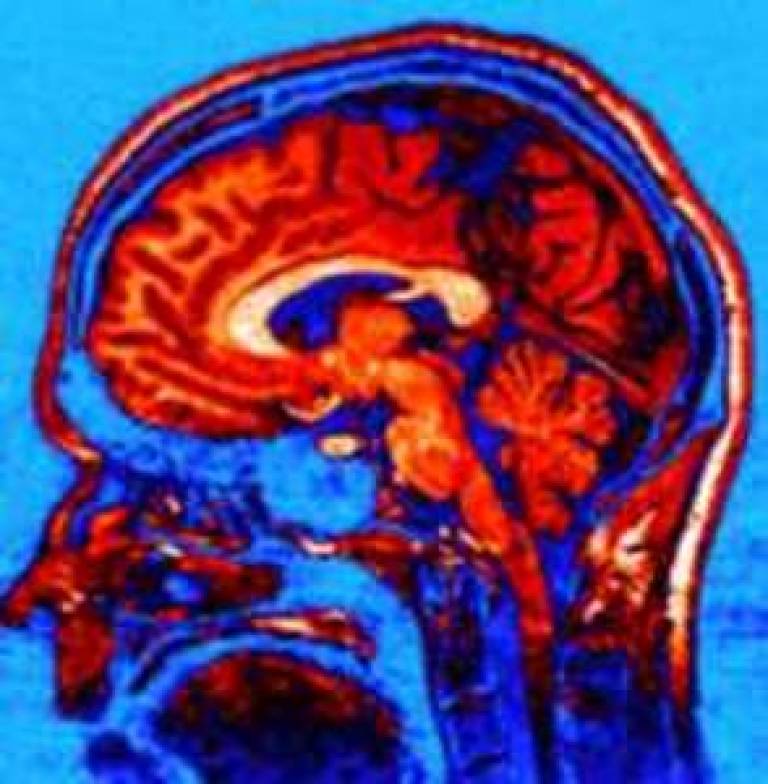Dopamine enhances expectation of pleasure in humans
12 November 2009
Press release Links:
 fil.ion.ucl.ac.uk/" target="_self">Wellcome Trust Centre for
Neuroimaging
fil.ion.ucl.ac.uk/" target="_self">Wellcome Trust Centre for
Neuroimaging
Enhancing the effects of the brain chemical dopamine influences how people make life choices by affecting expectations of pleasure, according to new research from the UCL Institute of Neurology.
The study, published today in Current Biology, confirms an important role for dopamine in how human expectations are formed and how people make complex decisions. It also contributes to an understanding of how pleasure expectation can go awry, for example in drug addiction.
Dopamine is a neurotransmitter produced in several areas of the brain that is found in a wide variety of animals. Its role in reward learning and reward-seeking behaviour is well established by animal studies - however, in humans its role is much less understood.
Lead author Dr Tali Sharot, Wellcome Trust Centre for Neuroimaging at UCL, said: "Humans make much more complex decisions than other animals - such as which job to take, where to go on holiday, whether to start a family - and we wanted to understand the role of dopamine in making these types of decisions. Our results indicate that when we consider alternative options when making real-life decisions, dopamine has a role in signalling the expected pleasure from those possible future events. We then use that signal to make our choices."
The research team, which included Dr Tamara Shiner and Professor Ray Dolan, examined estimated pleasure of future events before and after the administration of a drug called L-DOPA which is known to enhance dopamine function in the brain and is commonly used to treat patients with Parkinson's disease. The 61 study participants were asked to rate their expectations of happiness if they were to holiday at each of 80 destinations, from Thailand to Greece. They were then given L-DOPA or a placebo and asked to imagine holidaying in those destinations.
The following day participants had to pick between a series of paired destinations that they had initially assigned with equal ratings, one member of the pair was imagined under L-DOPA the day before and the other under placebo. Finally, they rated the full set of 80 destinations again.
Ratings for particular destinations increased after they were imagined under L-DOPA's influence. That increase also affected the participants' selections the following day. Dr Sharot added: "We had reason to believe that dopamine would enhance expectations of pleasure in humans, but were surprised at the strength of this effect. The enhancement lasted at least 24 hours and was evident in almost 80 per cent of the subjects."
The study builds on earlier work by Dr Sharot and colleagues,
which used brain imaging as participants imagined holiday destinations. An area
of the brain called the striatum tracked expectations and the scientists found
that they could take that signal and predict what the participants would
choose. The authors believed this was dopamine at work and set up this study to
further explore its role.
Media contact: Ruth Howells
UCL context
Wellcome Trust Centre for Neuroimaging at UCL
The
Functional Imaging Laboratory (FIL) was founded in 1994 following a
major grant award from the Wellcome Trust. In 2006, following a
successful bid for a Strategic Award the laboratory was awarded
Wellcome Trust Centre status and given its current name.
Research initiatives within the Wellcome Trust Centre for
Neuroimaging are organised thematically. The principal areas of
investigation are:
• Cognition & emotion
• Attention
• Plasticity, recovery & structure-function relationships
• Imaging neuroscience & theoretical neurobiology
• Consciousness & higher brain function
• Memory & space
• Language
• Visual awareness
• MRI Physics
• Methods
UCL Neuroscience brings together over 400 senior investigators who conduct world-leading research in molecular, developmental, cellular, cognitive, computational, and clinical neuroscience. The inter-disciplinary department has a particular strength in translating its research into new ways of diagnosing and treating disease through its partnerships with three large comprehensive and specialist biomedical centres.
 Close
Close

